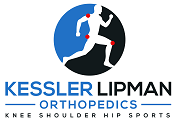Metabolic Syndrome
Introduction
Anatomy
Causes
Symptoms
Diagnosis
Treatment
Prevention
Am I at Risk
Increasing age is associated with metabolic syndrome, although it is becoming more predominant in school age children.
_____ People that are Hispanic or Asian have a greater risk than people of other races do.
_____ Obesity is a risk factor for metabolic syndrome. Abdominal obesity, weight around the waist or an “apple shaped” body presents a greater risk.
_____ A family history of diabetes or diabetes during pregnancy (gestational diabetes) increases the risk of metabolic syndrome.
_____ High blood pressure increases the risk of metabolic syndrome.
_____ Polycystic ovary disease in women alters hormones and increases the risk.
_____ People with heart disease have an increased risk of developing metabolic syndrome.
Complications

Copyright © - iHealthSpot Interactive - www.iHealthSpot.com
This information is intended for educational and informational purposes only. It should not be used in place of an individual consultation or examination or replace the advice of your health care professional and should not be relied upon to determine diagnosis or course of treatment.
The iHealthSpot patient education library was written collaboratively by the iHealthSpot editorial team which includes Senior Medical Authors Dr. Mary Car-Blanchard, OTD/OTR/L and Valerie K. Clark, and the following editorial advisors: Steve Meadows, MD, Ernie F. Soto, DDS, Ronald J. Glatzer, MD, Jonathan Rosenberg, MD, Christopher M. Nolte, MD, David Applebaum, MD, Jonathan M. Tarrash, MD, and Paula Soto, RN/BSN. This content complies with the HONcode standard for trustworthy health information. The library commenced development on September 1, 2005 with the latest update/addition on February 16, 2022. For information on iHealthSpot’s other services including medical website design, visit www.iHealthSpot.com.


